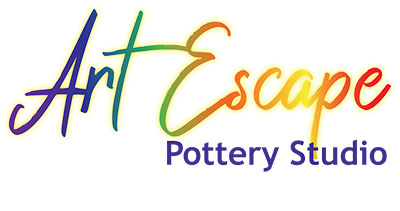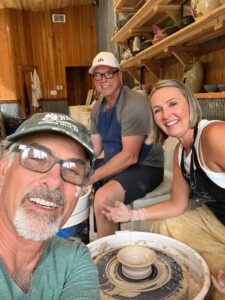A Therapeutic Journey with an Experienced Pottery Teacher
For individuals navigating the complexities of trauma and seeking a path to healing, finding grounding exercises that foster a sense of stability and connection can be instrumental in their journey. One such avenue of exploration is through pottery lessons, guided by an experienced pottery teacher who understands the therapeutic potential of working with clay. In this article, we’ll explore how taking pottery lessons from a seasoned pottery teacher can serve as a powerful grounding exercise for complex trauma survivors.
Understanding Complex Trauma: Complex trauma, often stemming from prolonged exposure to adverse experiences such as abuse, neglect, or violence, can disrupt an individual’s sense of safety, trust, and stability. Survivors of complex trauma may struggle with symptoms such as anxiety, dissociation, and hypervigilance, making it challenging to feel grounded in the present moment.
The Therapeutic Power of Pottery: Pottery offers a unique therapeutic modality that engages the mind, body, and spirit in the process of creation. Working with clay can be inherently grounding, as it requires focused attention, physical engagement, and sensory immersion. The tactile nature of clay provides a tangible connection to the present moment, anchoring individuals in the here and now.
Guidance from an Experienced Pottery Teacher: An experienced pottery teacher serves as a compassionate guide and mentor, creating a safe and supportive environment for trauma survivors to explore their creativity and express themselves through pottery. With their knowledge of both pottery techniques and trauma-informed practices, these teachers can adapt their approach to meet the unique needs of each individual student.
Creating a Safe Space: In pottery lessons led by an experienced teacher, trauma survivors are encouraged to cultivate a sense of safety and empowerment within the studio environment. Clear boundaries, respectful communication, and a non-judgmental atmosphere help individuals feel secure and supported as they embark on their pottery journey.
Engagement with the Senses: Pottery making engages the senses in a holistic way, offering opportunities for sensory exploration and self-regulation. From the tactile sensation of clay in their hands to the earthy smell of the studio, trauma survivors can connect with their bodies and surroundings, grounding themselves in the present moment.
Encouraging Self-Expression: Pottery lessons provide a creative outlet for trauma survivors to express themselves and process their emotions in a non-verbal and symbolic way. Through shaping, sculpting, and molding clay, individuals can externalize their internal experiences, releasing pent-up emotions and finding relief from distress.
Fostering Mindfulness and Relaxation: Pottery making encourages mindfulness and relaxation, inviting trauma survivors to slow down, breathe deeply, and cultivate a sense of calm amidst the chaos. By focusing on the rhythmic movements of their hands and the meditative process of creation, individuals can soothe their nervous systems and regulate their emotions.
Celebrating Progress and Resilience: As trauma survivors progress in their pottery journey, they have the opportunity to celebrate their achievements and recognize their resilience in the face of adversity. Each pottery piece created becomes a tangible symbol of strength, courage, and healing, affirming their worth and capacity for growth.
In conclusion, taking pottery lessons from an experienced pottery teacher offers trauma survivors a powerful pathway to grounding, healing, and self-discovery. Through the therapeutic process of working with clay, guided by a compassionate mentor, individuals can find solace, empowerment, and transformation on their journey towards healing from complex trauma.

